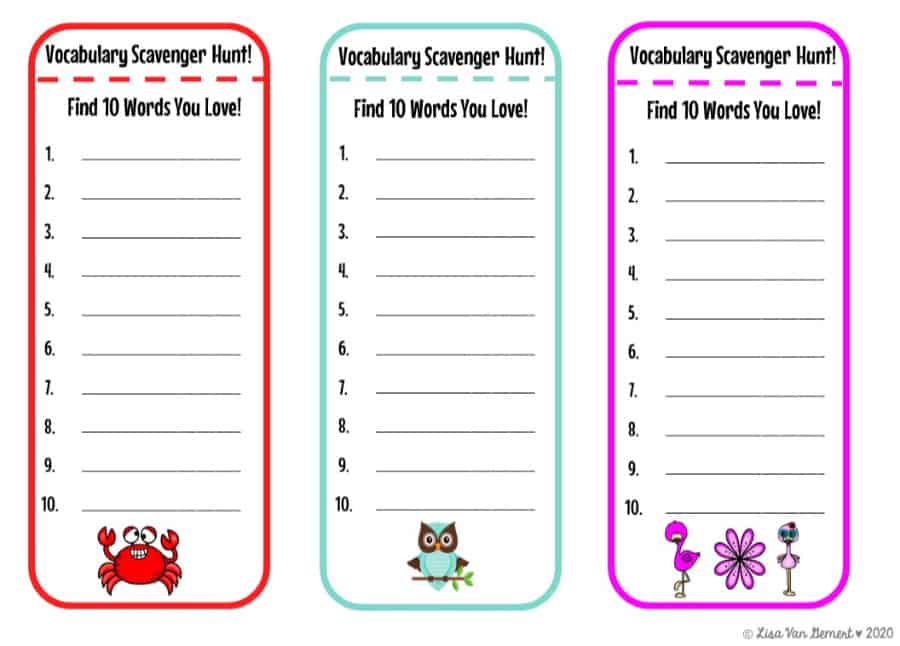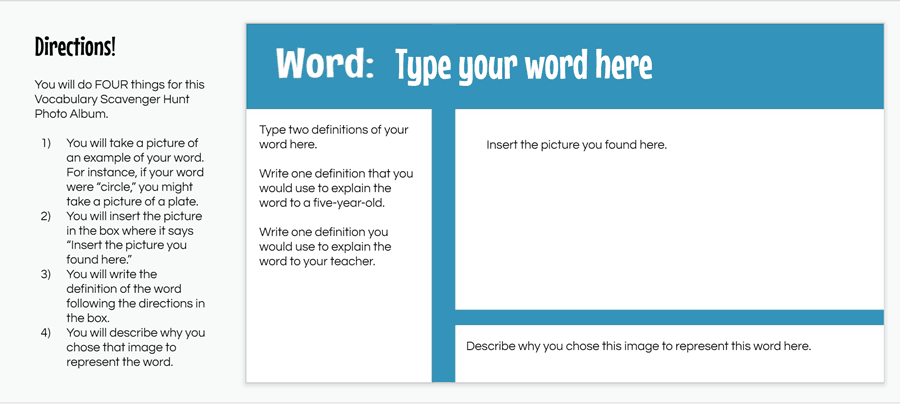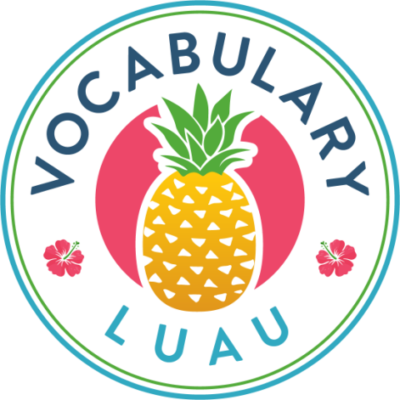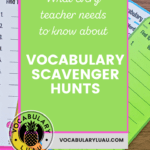I think you’ll love the printable for this one! Vocabulary scavenger hunts are fun, and they’re even more fun with a cool bookmark!
In a vocabulary scavenger hunt, students “hunt” for target words or the way those words are represented in books, magazines, articles on the web, in school, or at home.
For example, they either look for the word “quickly” or an example of something that was moving quickly.
While it seems like an obvious language arts activity, it works equally well in other content areas.
Let’s learn how to set it up!
? How to Set Up a Vocabulary Scavenger Hunt
In order to host a vocabulary scavenger hunt in your classroom, you first have to decide what you’re going to have students searching for.
You have two choices: students can either hunt for specific words, or they can hunt for types of words.
As the teacher, hunts for specific words take more prep work because you have to identify the words you want them to find.
You’ll see ideas for categories of words below!
To facilitate the hunt, you can give students:
- lists of words, either digitally or on a piece of paper
- categories or parameters and have them complete a sheet/digital document
- the opportunity to take pictures of words or examples of words they find
This choice depends upon what you’re going to do with them (see below for ideas on that) and what technology your students have or have access to.
? Specific Examples of Vocabulary Scavenger Hunts
This is one activity where the sky really is the limit, but as a sample, I’ll share some favorites:
- Parts of speech (adverbs, adjectives, nouns, verbs, prepositions, etc.)
- Subcategories of the parts of speech (coordinating and subordinating conjunctions, for example, or auxiliary verbs, transitive verbs, and intransitive verbs)
- Specific words from the text you’re reading
- Words from the math unit (triangle, circle, array, decimal, obtuse angle, etc.)
- Words of a specific syllable length
- Science terms (cell, measure, lab, experiment, etc.)
- Unfamiliar words
- Words an author used to describe a character, event, or place
- Tone words
- Intriguing words
- Words with homophones or homographs
- Words they want voted off the island
- Words they would want in their own dictionary
- Theme words
- Words with silent letters
- Words that follow a particular pronunciation rule (e.g., the Magic “E”)
- Words we’ve learned
- Certain prefixes, suffixes, or root words
- Words in a certain verb tense
- Color words
- Words they love
- Words they loathe
- Words that sound like another name for angry/happy/mean/messy
- Words that are easily confused with another word
- Words that would be awesome to name a kid
And on and on…
You can see that there are a lot of options!
? What Do You Have Students Do with the Words They Find?
You can give students a bookmark and have them find words in a text like this one:


I made a whole set of these that you can get in my TeachersPayTeachers store.
You can crowdsource a class list of words in a digital platform, on a bulletin board, or even just on a piece of paper.
If you do a photo vocabulary scavenger hunt, you can have students share in a Google Slide deck like this one.

You could create a “Vocabulary Scavenger Hunt” bulletin board.
To make it really simple, you can simply have a discussion of the words they found.
If you want to do it in a discussion format, have a way to celebrate amazing words. I like to use a clapper I got at the dollar store.
? Are There Any Mistakes People Make with Vocabulary Scavenger Hunts?
The most common mistake I see is when teachers turn what could be a fun activity into just another worksheet.
They make students fill out super involved worksheets with no celebration or excitement and just label it “Scavenger Hunt.”
Friends, that’s no fun. And it doesn’t fool kids, either.
To avoid this, make sure you carefully consider the way in which you’re presenting the scavenger hunt and the way you’re recognizing the words they find.
Some of the more unusual searches (e.g., “words that would make a great name for a kid”) give students a feeling that’s different from the one they get when they are just filling in a worksheet.
I’m a big believer in fun (I mean, Vocabulary Luau, right?), and this is an activity than lends itself to fun.
Don’t let it be drudgery or busy work.
? Wrapping Up:
Vocabulary scavenger hunts belong in every teacher’s toolbox because they can be adapted to so many uses.
They are immensely flexible, in that they’re useful for a wide variety of grade levels and content areas.
One thing I like is that because there are so many options for them (bookmarks, photo scavenger hunts, discussions, hunting for different types of words, etc.), the same strategy can be used over and over again without getting old.
I hope you like them as much as I do!?

